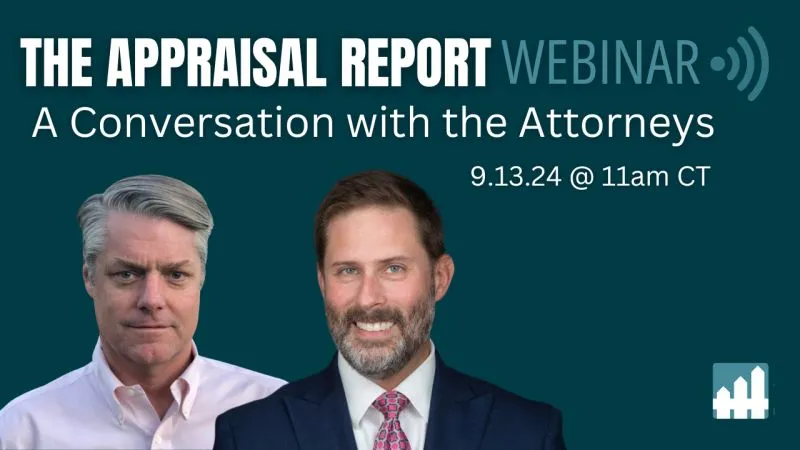
Condo Deconversions: Proceed With Caution
There is a growing trend in the Chicagoland real estate market and other urban areas in Illinois where developers and investors are looking to deconvert condominium projects into rental apartments. This deconversion process is governed by Section 15 of the Illinois Condominium Property Act (the “Act”) (765 ILCS 605/15). Of great importance (and potential concern) to appraisers specifically is Section 15(b) of the Act. While the language in Section 15(b) has been in the Act since its inception in 1992, the budding pitfalls for appraisers had remained largely ignored or irrelevant until the recent deconversion boom.
Once 75% of the unit owners in a condo building approve a sale, all owners (including the dissenting owners) are required to participate in the sale. Section 15(a), however, provides that any dissenting unit owner who files a written objection with the Board within 20 days after the date of the meeting at which such sale was approved shall be entitled to receive from the proceeds of such sale an amount equivalent to the value of his or her interest, as determined by a fair appraisal. In the event there is a disagreement as to the value of the interest of a unit owner, Section 15(b) states that the unit owner and the prospective purchaser each have a “right to designate an expert in appraisal or property valuation to represent him” and both of the experts mutually designate a third expert in appraisal or property valuation. The three experts would then constitute a panel to determine, by a vote of at least two of the members of the panel, the value of that unit owner’s interest in the property.
Section 15(b) becomes potentially troublesome for appraisers since it may stand in contrast to the Conduct, Management, and Confidentiality sections of the Ethics Rule of USPAP. The clear language of the Act provides that the experts in the panel represent the owner or purchaser – essentially advocating for them. Furthermore, all of the appraisals, and presumably any confidential assignment results or information considered, would need to be shared among the other experts on the panel. This and other concerns may arise for an appraiser performing such services.
To reduce the probability of potential liability or license complaints, there are specific steps that appraisers who are serving on these panels must follow when conducting the appraisal and drafting the appraisal report. Additionally, it should be noted that there is nothing in the Act that requires the experts in the panel be a licensed appraiser. Rather, the purported experts can be an expert in appraisal or property valuation, and these “experts” in property valuation are not necessarily credentialed, nor is the term “property valuation” defined.
It is anticipated that Brian Weaver, IDFPR Appraisal Coordinator, may address this matter publicly in presentations later this summer. However, as these condo deconversions are already in progress, it is critical that appraisers take steps to protect themselves immediately if they are accepting these types of assignments. If you would like further information regarding Section 15(b) and avoiding potential liability, please do not hesitate to contact us.
Attorney Advertising[/vc_column_text][/vc_column][/vc_row]